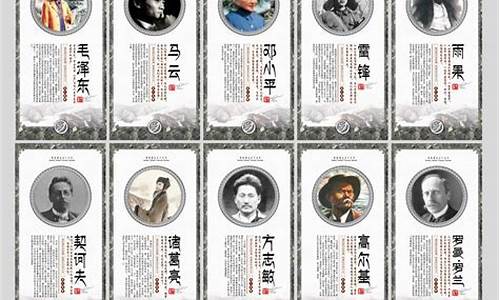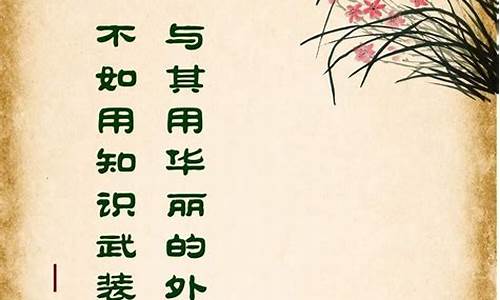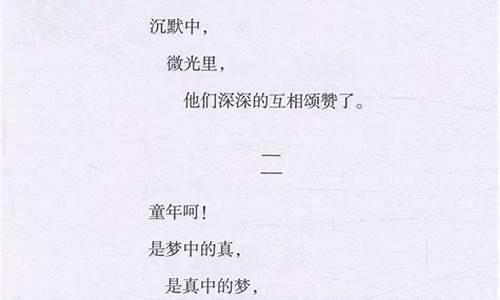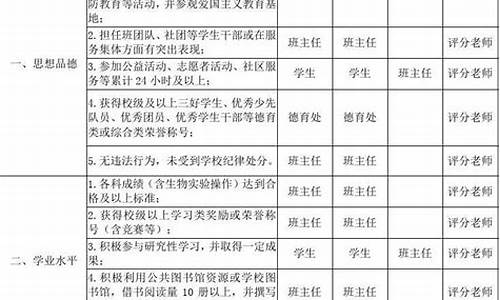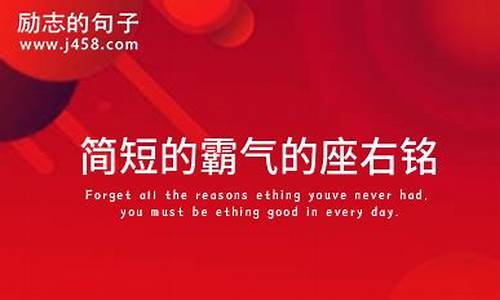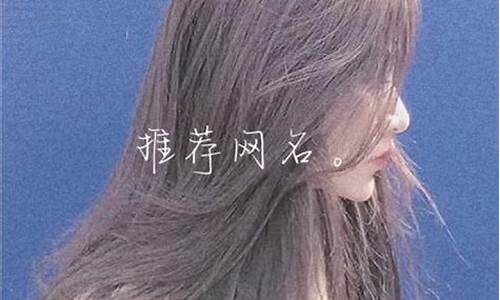六年级单词和句子_pep小学英语六年级期末复习单词句子
1.pep六年级上册英语重点知识
2.PEP小学六年级英语4~6单元单词[所有]
3.六年级英语 毕业总复习 所有句型和单词 加意思
4.PEP小学6下英语期末考试卷
5.人教版PEP小学英语六年级上册的英语单词和中文

PEP英语六年级上册各单元单词词汇表
Unit One
1. by 经….;乘….
2. foot 脚
3. bike 自行车
4. bus 公共汽车
5. train 火车
6. plane 飞机
7. ship 轮船
8. subway 地铁
9. how 如何;怎样
10. go to school 去上学
11. then 然后
12. fifth 第五
13. traffic 交通
14. traffic light 交通灯
15. traffic rule 交通规则
16. stop 停;停车站
17. wait 等;等待
18. remember 记住
19. get to 到达
20. find 寻找;找到
21. difference 不同;区别
22. same 相同的
23. every 每个;所有的
24. country 国家
25. always 总是;一直
26. mean 意思是
27. drive 驾驶
28. right 右边的
29. side 边
30. England 英国
31. Australia 澳大利亚
32. however 但是
33. left 左边的
34. if 如果
35. must 必须;一定
36. know 知道;认识
Unit Two
37. library 图书馆
38. post office 邮局
39. hospital 医院
40. cinema **院
41. bookstore 书店(美式)
42. science museum 科学博物馆
43. excuse me 对不起;请原谅
44. where 在哪里
45. please 请
46. next to 与… …相邻
47. far 远
48. supermarket 超市
49. bank 银行
50. after school 放学以后
51. want 想要
52. buy 购买
53. a pair of 一双
54. shoe store 鞋店
55. get off 下车
56. minute 分钟
57. north 北
58. south 南
59. east 东
60. west 西
61. turn 转弯
62. right 右边;对的
63. left 左边
64. straight 成直线地
65. then 然后
66. twelfth 第十二
67. party 聚会
68. tell 告诉
69. start 开始
70. take 乘坐;带走
71. look for 寻找
Unit 3
72. next week 下周
73. this morning 今天上午
74. this afternoon 今天下午
75. this evening 今天晚上
76. tonight 今晚
77. tomorrow 明天
78. take a trip 作旅行
79. read a magazine 阅读杂志
80. go to the cinema 去看**
81. theme park 主题公园
82. the Great Wall 长城
83. busy 忙碌的
84. together 一起地
85. comic book 书
86. post card 明信片
87. newspaper 报纸
88. magazine 杂志
89. dictionary 字典
90. shoe store 鞋店
91. buy 购买
92. fruit sand 水果摊
93. pet shop 宠物商店
94. need 需要
95. plant 植物
96. else 其他;另外
. shop 商店
Unit 4
98. hobby 爱好
99. ride a bike 骑自行车
100. dive 跳水
101. play the violin 拉小提琴
102. make kites 制作风筝
103. collect stamps 集邮
104. show 展览
105. pen pal 笔友
106. dear 亲爱的
107. twin 双胞胎之一
108. look 看上去
109. something 某事物
110. must 一定;肯定
111. fun 快乐;乐趣
112. with 同…;和…
113. TV reporter 电视台记者
114. live 居住;住
115. teach 教
116. go 去
117. watch (观)看
118. read 读;看
119. does 做;干
120. doesn’t=does not 不做;不干
121. different 不同的
122. week 星期;周
123. say 说;讲
124. soon 不久
125. excited 兴奋的;激动的
Unit 5
126. singer 歌唱家;歌手
127. writer 作家
128. actor 男演员
129. actress 女演员
130. artist 画家
131. TV reporter 电视台记者
132. show 演出;表演;节目
133. Hong Kong 香港
134. engineer 工程师
135. accountant 会计
136. policeman (男)警察
137. salesperson 销售员
138. cleaner 清洁工
139. company 公司
140. where 在哪里;到哪里
141. work 工作
142. factory 工厂
143. design 设计
144. tip (小)建议
145. help 帮助
146. money 钱;金钱
147. well 好;对
148. enjoy 喜爱;享受…乐趣
149. tourist 旅行者;旅游者
150. way 路;道
151. motor cycle 摩托车
152. police 警方
Unit 6
153. rain 雨;下雨
154. cloud 云;云彩
155. vapour 蒸汽;水汽
156. sun 太阳
157. stream 小河;小溪
158. come from 来自
159. shine 照耀
160. become 变成
161. little 小的;少的
162. drop 珠;滴
163. wake up 醒来;醒
164. feel 感觉到;感受到
165. think 想;思考
166. meet 遇见;碰见
167. high 高的
168. other 其他的;另外的
169. fall 落下;跌落
170. down 向下
171. into 进入
172. come out 露出;出现
173. again 又;再
174. seed
175. soil 土壤
176. sprout 苗;芽
177. plant 植物;种植
178. should 应该
179. then 然后
180. garden 花园
181. easy 简单的
182. put 放;放置
183. several 几个;一些
184. day 天;白天
185. see 看见
186. pot 锅;碗;瓢;盆
187. lovely 可爱的;美丽的
188. make sure 核实;查明
189. get 得到
190. month 月份;月
191. old 老的;(某)年龄的
192. still 仍然;还是
193. come on 加油;过来;继续
194. hardly 几乎没有;几乎不
六年级上册句型:
How do you go to school? 你怎么去学校?
Usually I go to school on foot. 通常我步行上学。
Sometimes I go by bike.有时候我骑车。
How can I go to Zhongshan park?我可以怎么去中山公园?
You can go by the No. 15bus.你可以坐15路汽车。
Where is the cinema,please?请问**院在哪里?
It’s next to the hospital.在医院旁边。
Turn left at the cinema, then go straight. It’s on the left.在**院左转,然后直走,就在它的左边。
What are you going to do on the weekend?你周末要干什么?
I’m going to visit my grandparents this weekend.我这个周末要去看爷爷奶奶。
Where are you going this afternoon?你今天下午要去哪里?
I’m going to the bookstore.我要去书店。
What are you going to buy?你要去买什么?
I am going to buy a comic book..我要去买一本书。
What’s your hobby?你的爱好是什么?
I like collecting stamps. He likes collecting stamps, too.我喜欢收集邮票。他也喜欢收集邮票。
Does she teach English?她教英语吗?
No, she doesn’t. / Yes, she does.不,她没有。/是,她是。
What does your mother do?你妈妈干什么的?
She is a TV reporter.她是个记者。
Where does she work?她在哪儿上班?
How does she go to work.?她怎么去上班?
Where does the rain come from?雨是从哪里来的?
It comes from the clouds.它来自云。
How do you do that?你怎么做的?
What should you do then?接着你可以做什么?
六年级上册句型
Unit 1 How Do You Go There?
话题:日常活动(交通)
时态:一般现在时
句型:
1. How 引导的特殊疑问句,围绕人们的出行方式展开交际:--- How do you + 行为活动?--- I + 行为活动 + 出行方式。例:
A: How do you go to school?
B: I usually go to school on foot.
2. How 引导的特殊疑问句,外出问路:--- How can I get to + 目的地?--- You can go + 交通方式。例:
A: How can I get to Zhongshan park?
B: You can go by the No. 15 bus.
Unit 2 Where Is the Science Museum?
话题:日常活动(外出)
时态:一般现在时
句型:
1. Where 引导的特殊疑问句,就建筑物的位置进行问答:--- Where is + 建筑物? --- It's next to + 建筑物。例:
A: Where is the cinema, please?
B: It's next to the hospital.
2. 祈使句,外出活动。例:
Turn left at the cinema, then go straight.
Unit 3 What Are You Going to Do?
话题:日常活动(打算、)
时态:一般将来时
句型:What, Where, When等引导的特殊疑问句,对将要进行的活动等进行问答:--- What are you doing to do + 时间?--- I'm going to + 行为活动。--- Where / When are you going? --- I'm going + 地点 / 时间。例:
A: What are you going to do on the weekend?
B: I'm going to visit my grandparents this weekend.
Unit 4 I He a Pen Pal
话题:爱好、日常活动
时态:一般现在时、第三人称单数
句型:
1. What 引导的特殊疑问句,互相交流各自的兴趣爱好:--- What's your hobby? --- I like + 行为活动(doing)。例:
A: What's your hobby?
B: I like collecting stamps.
2. 第三人称单数作主语:He / She + 动词的第三人称单数形式(does)。例:
He likes collecting stamps, too.
3. Does 引导的一般疑问句,用来确定自己对事情的判断:--- Does he / she + 动词原形?--- Yes, he / she does. No, he / she doesn't. 例:
A: Does she teach English?
B: No, she doesn't.
Unit 5 What Does She Do?
话题:职业
时态:一般现在时
句型:
1. What引导的特殊疑问句,询问他人的职业:--- What does + 第三人称单数 + do? --- She / He + 动词的第三人称单数形式。例:
A: What does your mother do?
B: She is a TV reporter.
2. 综合运用What, Where, How等疑问词,询问他人(第三人称)有关工作的情况:--- What / Where / How ... + does + he / she + 动词原形(do)? --- He / She + 动词的第三人称单数形式(does). 例:
A: How does she go to work?
B: She goes to work by bus.
Unit 6 The Story of Rain
话题:大自然
时态:一般现在时
句型:
1. Where 引导的特殊疑问句,来探讨自然界的循环变化:--- Where does +自然界的事物+come from? --- It comes from + ... 例:
A: Where does the rain come from?
B: It comes from the clouds.
2. 综合运用What, How等疑问词,来交流植物的生长过程:How / What ... + do / should + you + do? 例:
A: How do you do that?
B: Put the seeds in the soil.
pep六年级上册英语重点知识
(人教版)PEP小学英语六年级复习资料
一、 八个疑问词
where(哪里) how(如何) what(什么) when(什么时候)which(哪一个) who(谁) whose(谁的) why(为什么)
二、单词分类
交通方式:by bus, by train, by subway, by ship, by plane, by car, on foot 文具书籍:dictionary, newspaper, comic book, post card
职 业:singer, writer, TV reporter, actor, actress, engineer, accountant, salesperson,
policeman, policewoman,artist, cleaner
V-ing形式:riding a bike, collecting stamps, diving, making kites, playing the violin 第三人称单数形式:lives,teaches, watches, goes, does, doesn’t
公共场所:library,post office, cinema, hospital, science museum, bookstore 方位:east, west, south, north, turn left, turn right, go straight 交通灯; red light, yellow light, green light 自然: sun, cloud, rain, vapour, stream 种植:seed, soil, sprout, plant
三、不定冠词a和an 的用法
a 用于辅音因素开头的单词前,an用于元音因素开头的因素前 如:a singer, a writer, a policeman ,a salesperson
记住本学期出现过的用an 的单词:an actor , an actress, an English book, an artist, an accountant, an engineer, an orange, an old woman
四、 人称代词和物主代词
I(我)—my(我的) you(你)—your(你们的) we(我们)—our(我们的) he(他)— his (他的) she(她)—her(她的) it(它)— its(它的) they(他们,她们,它们)— their(他们的,她们的,它们的)
五、 介词的用法
1. Usually I go to school on foot, sometimes I go by bike. 2. Wait for the sprout. Wait for the flower to grow. 3. See you at two o’clock.
4. Go straight for five minutes. Then turn left.
5. It on the left.
6. Get on/ off at the post office.
六、 用动词的适当形式填空
1. like或者likes后面直接跟动词的ing形式 I like making kites. He likes collecting stamps. 2. want to 跟动词原形
I want to buy an English book in the bookstore. I want to be a science teacher one day. 3. can后跟动词原形 She can play the violin. I can play basketball.
4. be going to 后跟动词原形 (不要管是什么人称) What are you going to do on the weekend? I am going to visit my grandparents this weekend. John is going to buy a pair of shoes in the shoe store. We are going to he a picnic next week. 5. 第三人称单数形式加s 或es
(动词第三人称单数形式一般直接加s, 以ch,sh,s,x,o等结尾的加es, 以辅音字母加y结尾的变y为i再加es,如studies;特殊变化he 变has ) She cleans streets. He helps sick people. She reads newspaper every day.
---------------------------------------------------
He watches TV at home. He goes to work by subway. He is a teacher. He teaches English. My pen pal lives in Beijing. He studies hard.(他努力学习)
She has a hy family. (她有一个快乐的家庭) 6. 肯定回答,否定回答
Is there ……? Yes, there is. / No, there isn’t.
详情请见百度文库:://wenku.baidu/link?url=TmHo2KgNfA3g_2hzMHBb66d4QeoSulOOoXJnVbllKmroet7gEXQOu7pNqfMM9KncPDD87PKRg_a1f-kZrEz0lEtLSWulogWQ51mW_w4HhQm
PEP小学六年级英语4~6单元单词[所有]
第一单元How do you go there?重点:
小学英语PEP六年级上册重点句
1.How do you go to school?
2.Usually I go to school on foot.
3.Sometimes I go by bike.
4.How can I get to ZhongShan Park?
5.You can go by the No.15 bus.
6.Where is the cinema,please?
7.Its next the hospital.
8.Turn left at the cinema,then go straight,Its on the left.
9.What are you going to do on the weekend?
10.Iam going to visit my grandparents this weekend.
11.Where are you going this afternoon?
12.Iam going to the bookstore.
13.What are you going to buy?
14.Iam going to buy a comic book.
时态,句型
1.How do you go to school?
一般现在时,疑问句,go to school 的疑问词是how.
2.Usually I go to school on foot.
一般现在时,陈述句, Usually 是一般现在时的标志词。
3.Sometimes I go by bike.
一般现在时,陈述句,Sometimes 是一般现在时的标志词。
4.How can I get to ZhongShan Park?
一般现在时,疑问句,get to 的疑问词是how.
5.You can go by the No.15 bus.
一般现在时,陈述句,can 后只接do.
6.Where is the cinema,please?
一般现在时,疑问句
7.Its next the hospital.
一般现在时,陈述句
8.Turn left at the cinema,then go straight,Its on the left.
一般现在时,陈述句
9.What are you going to do on the weekend?
一般将来时,疑问句,将来时的句子结构是be going to do。
10.Iam going to visit my grandparents this weekend.
一般将来时,陈述句
11.Where are you going this afternoon?
一般将来时,疑问句,将来时的句子结构是be going to do.
12.Iam going to the bookstore.
现在进行时,陈述句,现在进行时的句子结构是be doing。
13.What are you going to buy?
一般将来时,疑问句 将来时的句子结构是be going to do.
14.Iam going to buy a comic book.
现在进行时,陈述句,现在进行时的句子结构是be doing。
现在分词
一般直接加ing eg:go-going
元音结尾双写加ing eg:run-running
有e的去e加ing eg:write-writing
名词学习
职业
eg:act-actor
actress
y
六年级英语 毕业总复习 所有句型和单词 加意思
Unit 4
hobby(爱好)
ride a bike--riding a bike(骑自行车)
dive--diving(跳水)
play the violin— playing the violin(拉小提琴)
make kites—making kites(制作风筝)
collect stamps—collecting stamps(集邮)
show 展览
pen pal 笔友
dear 亲爱的
twin 双胞胎之一
something 某事物
must 一定;肯定
fun 快乐;乐趣
with 同…
TV reporter电视台记者
live –lives(居住) teach--teaches(教) go--goes(去) watch--watches(看) read--reads(读,看)
does doesn’t=does not
different 不同的
week 星期;周
say 说
soon 不久
excited 兴奋的;激动的
Unit 5
singer(歌唱家,歌手) writer(作家)
actor(男演员)
actress(女演员)
artist(画家)
TV reporter(电视台记者)
Hong Kong 香港
engineer(工程师) accountant(会计) policeman(男警察) salesperson(销售员) cleaner(清洁工)
company 公司
where(在哪里,到哪里) work(工作)
factory 工厂
design 设计
tip 有用的小建议
help 帮助
money 钱
well 好;对;满意地
enjoy 从…获得乐趣
tourist 旅行者;
way 路;道
motor cycle 摩托车
police 警方;警察部门
Unit 6
rain(雨)
cloud (云)
vapour 蒸汽;水汽
sun(太阳)
stream(河,溪)
come from(来自,从…来)
shine 照耀
become 变成
little 小的
drop 一滴
wake up 醒来
feel 感觉到
think 想;思考
meet 遇见
high 高的
other 其他的
fall 落下
down 向下
into 进入
come out 露出
again 又
seed()
soil(土壤)
sprout (苗,芽)
plant(植物,种植)
should (应该)
then(然后)
garden 花园
easy 简单的
put 放
several 一些
day 天
see 看见
pot 锅碗瓢盆
lovely 可爱的
make sure 核实
month 月份
still 仍然
hardly 几乎不
PEP小学6下英语期末考试卷
PEP英语三年级(上册)三会单词
Unit 1:pen 钢笔 pencil 铅笔 pencil-case 铅笔盒 ruler 尺子 eraser 橡皮
crayon 蜡笔book 书bag 书包sharpener 卷笔刀school 学校
Unit 2: head 头 face 脸 nose 鼻子mouth 嘴 eye 眼睛 ear 耳朵 arm 胳膊
finger 手指 leg 腿 foot 脚 body 身体
Unit3:red 红色的 yellow **的 green 绿色的 blue 蓝色的 purple 紫色的 white 白色的black 黑色的 orange 橙色的 pink 粉色的 brown 棕色的
Unit 4:cat 猫 dog 狗 monkey 猴子 panda 熊猫 rabbit 兔子 duck 鸭子 pig 猪 bird 鸟bear 熊 elephant 大象 mouse 老鼠 squirrel 松鼠
Unit 5:cake 蛋糕 bread 面包 hot dog 热狗 hamburger 汉堡包 chicken 鸡肉
French fries 榨薯条 Coke 可乐 juice 果汁 milk 牛奶 water 水 tea 茶 coffee 咖啡
Unit 6:one 一 two 二 three 三 four 四 five 五 six 六 seven 七 eight 八 nine 九ten 十 doll 玩具娃娃 boat 小船 ball 球 kite 风筝 balloon 气球 car 小汽车 plane 飞机
PEP英语三年级(下册)三会单词
Unit 1:boy 男孩 girl 女孩teacher 教师student 学生this 这个my 我的friend 朋友I’m=I am 我是nice 好的;愉快的good morning 早上好good afternoon下午好meet 遇见;碰见goodbye 再见too 也;太
Unit 2:father 父亲;爸爸dad 爸爸(口语)mother 母亲;妈妈mom 妈妈(口语)man 男人woman女人grandmother (外)祖母grandma (口语)(外)祖母grandfather(外)祖父grandpa (口语)(外)祖父sister 姐妹brother 兄妹let’s=let us 让我们great 太好了really 真地;确切地and 和;并且how 多么;怎么样
Unit 3:eleven 十一twelve 十二thir 十三four 十四fif十五six 十六
seven 十七eigh 十八nine 十九twenty 二十how many 多少 can 能够;可以look at 看;瞧
Unit 4:peach 桃pear 梨orange 橙子watermelon 西瓜le 苹果banana 香蕉strawberry 草莓grape 葡萄like 喜欢some 一些;某些thanks 多谢
Unit 5:bus 公共汽车bike 自行车taxi 出租车jeep 吉普车desk 课桌chair 椅子walkman 随身听lamp 台灯your 你的;你们的zoo 动物园
Unit 6:small 小的big 大的long 长的short 短的;矮的tall 高的giraffe 长颈鹿deer 鹿
PEP四年级上册四会单词词汇表
Unit 1
window-窗户 he-(我们)有
board-写字板 new-新的
light-灯,灯管 go-去
picture-画,图画 where -在......哪里
door -门 computer-计算机
floor-地板 teacher"s desk-讲台
classroom-教室 wall-墙
many-许多的 fan-扇子,电扇
our-我们的 clean-打扫,清洁,擦干净的
classmate-同学 good idea-好主意
he a look-看一看 all right-好吧,好的
seat-座位 good job-干的好
near-在......的旁边 you-你
what-什么 see-看
in-在......里面 me-我
the-这个,这里 look at-看......
we-我们
Unit 2
Chinese book-语文书 pencil-铅笔
English book-英语书 twenty-one-二十一
math book-数学书 thirty-one-三十一
schoolbag-书包 forty-one-四十一
stiry-book-故事书 fifty-五十
notebbook-笔记本 too many-太多了
colour-颜色 too many-太多了
fat-胖的 hey-重的;沉重的
may -可以 what"s=what is-
sure-当然可以 sorry-对不起
here you are-给你 book-书
bag-包 ruler-尺子
pen-钢笔 pencil-case - 铅笔盒
Unit 3
jacket(夹克衫) shirt(衬衫) skirt(裙子) dress(连衣裙) T-shirt(T恤衫) red(红色的) blue(蓝色的) yellow(**的) green(绿色的) white(白色的) no(不;不是) not(不;不是的) colour(颜色)
Unit 4
warm(暖和的) cold(寒冷的) cool(凉爽的) today(今天) jeans(牛仔裤) pants(长裤) socks(袜子) shoes(鞋子) let’s=let us play(玩;踢) football(足球) snowy(下雪的) sunny(晴朗的)
Unit 5
how much(多少钱) big(大的) small(小的) long(长的) short(短的) le(苹果) banana(香蕉) pear(梨) orange(橙子) watermelon(西瓜) are(是) they 它(他、她)们
Unit 6
horse(马) aren’t=are not cat(猫) rabbit(兔子) pig(猪) duck(鸭子) dog(狗) eleven(十一) twelve(十二) thir(十三) fif(十五) twenty(二十) how many(多少) there(那儿;那里)
PEP四年级下册四会单词词汇表
Unit 1:computer(计算机) board(写字板) fan(风扇) light(灯) this(这;这个)is(是)my(我的) that(那;那个) your(你的) teacher’s desk(讲台)picture(图画;照片) wall(墙壁) floor(地板) yes(是;是的) it(它)
Unit 2:one(一) two(二) three(三) four(四) five(五) six(六) seven(七) eight(八) nine(九) ten(十) what(什么) time(时间) it’s=it is …o’clock(…点钟) math(数学) Chinese(语文)English(英语) P.E.(体育) music(音乐) for(为;给) class(课程)
Unit 3:jacket(夹克衫) shirt(衬衫) skirt(裙子) dress(连衣裙) T-shirt(T恤衫) red(红色的) blue(蓝色的) yellow(**的) green(绿色的) white(白色的) no(不;不是) not(不;不是的) colour(颜色)
Unit 4:warm(暖和的) cold(寒冷的) cool(凉爽的) today(今天) jeans(牛仔裤) pants(长裤) socks(袜子) shoes(鞋子) let’s=let us play(玩;踢) football(足球) snowy(下雪的) sunny(晴朗的)
Unit 5:how much(多少钱) big(大的) small(小的) long(长的) short(短的)le(苹果) banana(香蕉) pear(梨) orange(橙子)watermelon(西瓜) are(是)
they 它(他、她)们
Unit 6:horse(马) aren’t=are not cat(猫) rabbit(兔子) pig(猪)duck(鸭子) dog(狗) eleven(十一) twelve(十二) thir(十三)fif(十五) twenty(二十) how many(多少) there(那儿;那里)
PEP五年级上册四会单词词汇表
Unit 1:Young (年轻的) funny (滑稽可笑的) tall (高的)strong (强壮的) kind (和蔼的、亲切的) old (年老的) short(矮的)thin (瘦的) Mr (先生) like (像、喜欢) strict (严格的)smart (聪明的、巧妙的) active (积极的、活跃的) quiet (安静的、文静的)very(很、非常) but (但是)
Unit 2:Mondy (星期一) Tuesday (星期二) Wednesday (星期三) Thursday
(星期四) Friday (星期五) Saturday (星期六) Sunday (星期天)day (天) he (有、吃) on (在…..时候) do homework (做作业)watch TV (看电视) read books (读书)
Unit 3:eggplant (茄子) fish (鱼) green beans (青豆) tofu (豆腐)potato (土豆) tomato (西红柿) for (为) lunch (中餐) we(我们) tasty (好吃的) sweet (甜的) sour (酸的) fresh(新鲜的) salty (咸的) fourite (最喜欢的) they are (他们是)fruit (水果) grape (葡萄)
Unit 4:Cook the meals () water the flowers (浇花) sweep the floor (扫地) clean the bedroom (打扫卧室) make the bed(铺床) set the table (摆饭桌)wash the clothes (洗碗碟) do the dishes (收拾衣服) use a computer (使用计算机)
Unit 5:curtain (空调) trash bin (垃圾箱) closet (壁橱) mirror(镜子) end table (床头柜) bedroom (卧室) kitchen (厨房)bathroom (卫生间) living room (客厅) in (在…里面) on(在…上面) under (在…下面) near (在..旁边) behind (在…后边)clothes (衣服)
Unit 6:river (河流) flower (花) grass (草) lake (湖泊) forest(森林) path (路) pake (公园) picture (照片) hourse (房子)bridge (桥) tree (树) road (公路) building (建筑物)clean (干净的)
PEP五年级下册四会单词词汇表
Unit 1:do morning exercises(晨练) eat breakfast(吃早饭) he English class(上英语课) play sports(进行体育运动) eat dinner(吃晚饭) when(什么时候) evening(夜晚;晚上) get up(起床)at(在……点钟) usually(通常;一般) noon(中午) climb mountains(爬山) go shopping(购物;买东西) play the piano(弹钢琴) visit grandparents(看望祖父母) go hiking(去远足)weekend(周末) often(经常) sometimes(有时候)
Unit 2:spring(春天) summer(夏天) fall(秋天) winter(冬天)season季节) which(哪一个) best(最;极) swim(游泳) fly kites(放风筝) skate(滑冰;滑冰鞋) make a snowman(堆雪人) plant trees(种树) why(为什么) because(因为) sleep(睡觉)
Unit 3:Jan./January(一月) Feb./February(二月) Mar./March(三月)Apr./April(四月) May(五月) June(六月) July(七月) Aug./Augest(八月) Sept./September(九月) Oct./October(十月)Nov./November(十一月) Dec./December(十二月) birthday(生日) uncle(叔叔;舅舅) her(她的) date(日期)
Unit 4:draw pictures(画画)cook dinner(做饭) read a book(看书)answer the phone(接电话) listen to music9(听音乐) clean the room(打扫房间) write a letter(写信)write an e-mail(写电子邮件)mom(妈妈)grandpa(爷爷;外公)study(书房)
Unit 5:fly(飞) jump(跳) walk(走) run(跑) swim(游泳)kangaroo(袋鼠) sleep(睡觉)climb(往上爬)fight(打架)swing(荡;荡秋千) drink water(喝水)
Unit 6:take pictures(照相) watch insects(观察昆虫) pick up lees(摘树叶) do an experiment(做实验) catch butterfly(捉蝴蝶) honey(蜂蜜) count insects(数昆虫)collect lees(收集树叶) wtite a report(写报告) play chess(下棋) he a picnic(举行野餐)
PEP六年级上册四会单词词汇表
Unit 1:by (经,乘) foot(脚) bike(自行车) bus(公共汽车) train(火车) how(怎样) go to school(上学) traffic(交通) traffic light(交通灯) traffic rule(交通规则) stop(停,停车站)wait(等待) get to(到达)
Unit 2:library(图书馆) post office(邮局) hospital(医院) cinema(**院) bookstore(书店) where(在哪里,到哪里) please(请) next to(与…相邻) turn(转弯) right (右边) left(左边) straight(成直线地) then(然后)
Unit 3:next week(下周) this morning(今天上午) this afternoon(今天下午) this evening (今天晚上) comic book(书) post card(明信片) newspaper(报纸) buy(购买)
Unit 4: hobby(爱好) ride a bike--riding a bike(骑自行车) dive--diving(跳水) play the violin—playing the violin(拉小提琴) make kites—making kites(制作风筝) collect stamps—collecting stamps(集邮) live –lives(居住) teach--teaches(教) go--goes(去) watch--watches(看) read--reads(读,看) does doesn’t=does not
Unit 5:singer(歌唱家,歌手) writer(作家) actor(男演员) actress(女演员) artist(画家) TV reporter(电视台记者) engineer(工程师) accountant(会计) policeman(男警察) salesperson(销售员) cleaner(清洁工) where(在哪里,到哪里) work(工作)
Unit 6:rain(雨) cloud (云) sun(太阳) stream(河,溪) come from(来自,从…来) seed() soil(土壤) sprout (苗,芽) plant(植物,种植) should (应该) then(然后)
PEP六年级下册四会单词词汇表
Unit 1:tall—taller更高的 short—shorter 更矮的 strong—stronger更强壮的 old—older 年龄更大的 young—younger 更年轻的 big—bigger更大的hey—heier 更重的 long—longer 更长的 thin—thinner 更瘦的 small—smaller (体型)更小的
Unit 2:he a fever 发烧 he a sore throat喉咙疼 he a cold感冒 he a toothache 牙疼 he a headache 头疼 matter事情,麻烦 sore 疼的 hurt疼痛 nose 鼻子 tired疲劳的,累的 excited兴奋的 angry生气的 hy高兴的 bored无聊的,烦人的 sad 忧伤的,悲伤的
Unit 3:watch—watched 看 wash—washed 洗 clean—cleaned打扫 play—played玩 visit—visited 看望 do—did last weekend上一个周末 go—went去 go to a park—went to a park 去公园 goswimming—went swimming去游泳 go fishing—went fishing去钓鱼 read—read 读 go hiking—went hiking 去郊游
Unit 4:leran Chinese—learned Chinese学汉语 sing and dance—sang and danced 唱歌和跳舞 eat good food—ate good food吃好吃的食物take pictures—took pictures 照相 climb—climbed 爬 he—had buy presents—bought presents买礼物 row aboat—rowed a boat 划船 see elephant—saw elephant 看大象 go skiing—went skiing 去滑雪 go ice-skating—wentice-skating 去滑冰 how怎么,如何 get—got 到达 last上一个的,仅余的,留在最后的
人教版PEP小学英语六年级上册的英语单词和中文
六年级期末试卷
听力部分(30分)
一、 听音,圈出听到的单词。(10分)
1. play plane plate 2. wait want what
3. talk take tell 4. work walk wake
5. feel fall fail 6. angry hungry hurry
7. skate skirt shirt 8. watch water wash
9. stop shop drop 10.seed seat said
二、 根据听到的句子,选择正确的。(10分)
1. 2.
A B A B
3. 4.
A B A B
5. 6.
A B A B
7. 8.
A B A B
9. 10.
A B A B
三、 听短文,连线。(10分)
Wei Wei Yunnan
Liu Xi Ningbo
Li Ping Hangzhou
Zheng Jing Harbin
Wu Yifan Shanghai
笔试部分(70分)
一、根据要求写出所给单词的适当形式 (10分)
1 .three (序数 )_____________ 2. hey(比较级)_____________
3. right ( 反义词) _____________ 4 .do ( 第三人称单数)_____________
5. early (比较级) _____________ 6.those (单数)_____________
7.he(过去式) _____________ 8. foot(复数)_____________
9. my(名词性物主代词) ___________ 10.read(过去式)_____________
二、选择正确答案,将其序号填入题前括号内。(每个1分,共15分。)
( ) 1. I like drawing pictures and she____________.
A. like singing B. like to sing C. likes singing
( ) 2 . Wu Ming is a girl, she _________ long hair.
A. has B. was C. he
( ) 3. He is going ____________ artist.
A. to an B. to be an C. an
( ) 4. She is _________ than me?
A. strong B. strongger C. stronger
( ) 5. I went _________ a holiday.
A. to B. on C. with:
( )6.--I usually get up ______ seven o’clock in the morning.
A .at B. on C. of
( )7.-- ______ is the coat? --Thirty-five yuan, please.
A .How B. How much C. How old
( )8.-- Excuse me, can you tell me the way to the Garden Cinema?
-- Let me see. You can ______ bus No. 5.
A .by B. take C. go
( )9. --Are there any students in the classroom?
-- Yes, there are ______ students in the classroom.
A .any B. some C. a
( )10.--Did is playing ______ basketball in the playground.
A .a B. the C. \
( )11.--It’s time __________lunch.
A. to B.for C. he
( )12.-_____ you watch TV last night?
-Yes, I watched TV.
A. Did B. Do C. Does
( )13. John got a nice present yesterday, he looked ____________.
A. sad B. hy C. tired
( )14.-What’s the_________ you, Mike ? -I he a cold.
A. matter on B. match with C. matter with
( )15.Guangzhou is in _________ China.
A .east B. north C. south
三、用所给词的适当形式填空(6分)
1.--Do you swim faster than your brother?
-- No, I swim __________ (slow) than my brother.
2.I like _________ (make) model planes.
3.It is Sports Day, all the __________ (student) are very excited.
4.--What does Bob do on Sundays?
-- He often _________ (watch) the cartoons.
5. Mary’s eyes are ___________(big ) than Lucy’s.
6.You shouldn’t ____________(put) your mobile phone beside the computer.
四、从I栏选出与II栏相对应的句子。(7分)
I II
( )1.How far is it from here ? A. You can take bus No.8
( )2.Where’s the stop ? B. It’s over there.
( ) 3.Thank you very much . C. SuHai is twenty minutes younger than me .( )4.Do the tigers run faster than the pandas ? D.You’re wellcome .
( ) 5.Who’s younger,you or SuHai? E . It’s about two kilometers away.( )6.What time did you get up ? F. Yes,they do.
( )7.How can I get there? G.At half past seven .
五、 句子排序 (10分)
1.where on you go your holiday did
__________________________________________________?
2. matter with you what’s the
___________________________________________________?
3. the do you what on weekend do usually
____________________________________________________?
4. you much am than I taller
_____________________________________________________.
5. visit I’m tomorrow my going grandparents to
______________________________________________________.
六、读一读,判断对错。对的写“T”,错的写“F”。(每个2分,共12分)
Last weekend we had a birthday for our classmate Zhang Xiaohui. She is younger than me, but I am shorter than her. And she looks stronger. Of course she is heier than me. We went to a shop to buy a present for Xiaohui. What did we buy? We bought a doll for her. Because she told me “ I hen’t got a lovely doll.” When she got our present she looked excited. She was very hy. We went to the zoo. We saw elephants. We wanted to row a boat in Jingming park, but it was later, we had to went home. We had a good time on that day.
( ) 1. Xiaohui is taller than me.
( ) 2. I bought a doll for Xiaohui.
( ) 3. We went to a shop last month.
( ) 4. They had a good time on Xiaohui’s birthday.
( ) 5. We rowed a boat in the park.
( ) 6.Xiaohui is older than me, so she is heier than me.
七、根据所给的写话。(10分)
提示:1.时间:上个周末。
2.至少写五句话,说明中有谁?她们在何时去了哪里,做了什么?看到了什么? 当时的心情如何?
_________________________________________________
_________________________________________________
_________________________________________________
_________________________________________________
_________________________________________________
_________________________________________________
_________________________________________________
听力材料及参考答案
一、听音,圈出听到的单词。
1.plane 2. wait 3. take 4. walk 5. fail 6. angry
7. skate 8. wash 9. shop 10.seed
二、根据听到的句子,选择正确的。
1. How does he feel? He has a toothache. (B)
2. What are they doing? They’re swinging. (A)
3. What are you going to do this weekend? I’m going to plant trees. (B)
4. What’s your hobby? I like playing the piano. (A)
5. How does your uncle go to Shanghai? He goes there by ship. (B)
6. Turn right at the second traffic lights. You can see the bank. (B)
7. My mother teaches math. (B)
8. I’m going to buy a dictionary this afternoon. (B)
9. You can see the hospital on the left. (A)
10. My aunt is a salesperson. (B)
三、听短文,连线。
There are many different places in China. Students in different places do different things on weekends. Let's he a look at these students:
Li Ping is in Harbin. Now she is skating with her friends. They often skate on weekends. They can skate very well.
Liu Xi is in Yunnan. He is swimming in the river near his home with his classmates. Swimming is his fourite sport. They often swim and play in the river.
Wu Yifan is in Hangzhou. He is doing his homework at home. He is a student of Zhongshan Primary School. He is a good student in his class. He studies very well. He has a lot of homework every weekend. He has no time to do other things.
Wei Wei is in Ningbo. He is doing housework with his mother. They do housework nearly every weekend. Wei Wei's father is very busy with his work. He has no time to look after(照顾) his family.
Zheng Jing is in Shanghai. He is watching TV at home with his grandmother. He's laughing and dancing. He wants to he a good rest on weekends.
What do you do on the weekend?
(连线略)
Unit 1:
by (经,乘) foot(脚) bike(自行车) bus(公共汽车) train(火车) how(怎样)
go to school(上学) traffic(交通) traffic light(交通灯) traffic
rule(交通规则) stop(停,停车站)wait(等待) get to(到达)
Unit 2:
library(图书馆) post office(邮局) hospital(医院) cinema(**院)
bookstore(书店) where(在哪里,到哪里) please(请) next to(与…相邻)
turn(转弯) right (右边) left(左边) straight(成直线地) then(然后)
Unit 3:
next week(下周) this morning(今天上午) this afternoon(今天下午)
this evening (今天晚上) comic book(书) post card(明信片)
newspaper(报纸) buy(购买)
Unit 4:
hobby(爱好) ride a bike--riding a bike(骑自行车) dive--diving(跳水)
play the violin—playing the violin(拉小提琴) make kites—making
kites(制作风筝) collect stamps—collecting stamps(集邮) live
–lives(居住) teach--teaches(教) go--goes(去) watch--watches(看)
read--reads(读,看) does doesn’t=does not
Unit 5:
singer(歌唱家,歌手) writer(作家) actor(男演员) actress(女演员)
artist(画家) TV reporter(电视台记者) engineer(工程师) accountant(会计)
policeman(男警察) salesperson(销售员) cleaner(清洁工) where(在哪里,到哪里)
work(工作)
Unit 6:
rain(雨) cloud (云) sun(太阳) stream(河,溪) come from(来自,从…来)
seed() soil(土壤) sprout (苗,芽) plant(植物,种植) should (应该)
then(然后)
声明:本站所有文章资源内容,如无特殊说明或标注,均为采集网络资源。如若本站内容侵犯了原著者的合法权益,可联系本站删除。

